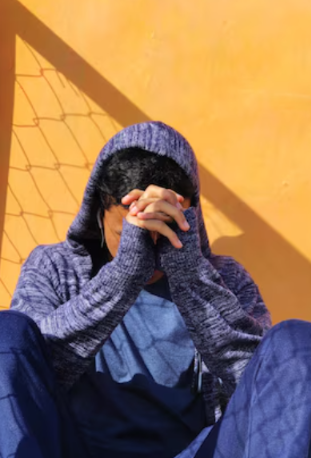Last night, Haesun Moon and I had our joint Book Party, to celebrate both of our books; Coaching A to Z, and Relationspaces; A Solution-Focused Handbook for Parents. The event was at once extremely energizing, while it shed the light of peace and support from faithful family, friends and colleagues. The backdrop of this beautiful event was the newly decorated and established space for the Canadian Centre for Brief Coaching – on the University of Toronto Campus. We donated 20% of proceeds to our favourite Not-for-Profit organizations – Karis Disability Services and Youthspeak. We enjoyed warm and spirited conversations, delicious refreshments, and moments to contemplate and digest the power of being in the here-and-now.
Today I am left wondering about the joy of celebration, and how bringing people together in this capacity, unveils the power of hope in relationships. Not too long ago, we weren’t able to engage in such events, as we were constrained from being in public, and afraid to expose ourselves to the many health hazards of COVID. In-person celebrations were unavailable to us. I think about family and friends last night who ventured downtown on the first truly cold night before winter. It was at the end of a long day’s work and in the middle of the workweek. Yet, they made the effort to show up because being able to lend support, and being in warm social spaces is something human beings ultimately value and thrive within. While this felt like a launch for Haesun and me, it also felt like a fresh start of sorts – the act of celebrating together. In a climate of celebration, we felt a sense of hope for each of us, for others and for the world.
I noticed happiness found in conversations throughout the evening, how every relationspace between two, three or four people, was filled with positive energy. They were bringing their best selves to each other. They were seeking out the best in others. They were asking each other questions, and interested in what each had to say. They were open to learning from each other, and attentive as Haesun and I spoke and read from our books. Online gatherings cannot accomplish how our guests were positively impacting this beautiful space. The energy in the room reminded them that we are experiencing so many fresh starts as we remember to celebrate again in the company of others.
How can we transfer this positive energy that uplifts our spirits and those of others, to our relationships in daily life? Do we have to wait for all of the elements of a party to be at play, or are we able to create this energy on our own in all of our relationships? I believe that we can when we make a conscious effort to notice, appreciate and make room for fresh starts.
The following is the excerpt I read from my book – Relationspaces; A Solution-Focused Handbook for Parents (p. 224):
Fresh Start—Reboot
As a parent creating a relationspace (RS), you can easily infuse hope in your child, providing them with a fresh start every day, no matter what challenges they experienced on the previous day. I like to use a reboot analogy. At the start of each day, you reboot your computer, giving it a fresh opportunity to restart and prepare itself for the new day. As it restarts, your computer arranges itself to offer its best performance. Your computer does not experience any emotion, so it prepares itself free of stress or remorse from the previous day. Your computer takes the opportunity to experience an unconditional fresh start.
When you give your children the chance to reboot at the end of each day (healthily process their day and prepare for the next, believing that they will have a fresh start on the following day), they do not need to go to sleep that night feeling stress, remorse, fear, or rejection. In a climate of hope, they trust that they will safely face a new day with motivation to learn from the previous one and to address things differently. When children are valued and respectfully provided with the opportunity to try again, they become hopeful for change and trusting of their support system.
The Chronically Late Student—Nina
I had a fifteen-year-old student, Nina, who always arrived late for school. I was concerned that she was missing a lot of class time, and I tried everything to encourage her to change this pattern. Nina’s only reason for lateness was that she regularly missed the bus. I contacted her parents to ensure that there were no other issues of concern. They acknowledged that it was hard to get her out of bed in the morning, even after her alarm rang, and they had run out of ideas to address her tardiness. Nina, her parents, and I established a plan for her to consciously prepare herself for each day—to set two alarm clocks, wake up earlier, set out her clothes the prior evening, leave her computer/phone out of her room for a better sleep, etc. Yet the problem persisted. One morning as I was reflecting upon Nina’s lateness, it occurred to me that I had developed a narrative about Nina; she was the late student and nothing more. In focusing regularly on her lateness (the problem), I was ignoring Nina’s other attributes (e.g., kindness, work ethic, engagement in class discussion, and helpfulness to her peers). I asked myself if by doing so, I was in fact contributing to the problem. As a result, I set out to change the course of events with RS. I decided to look beyond the lateness problem and to reflect instead on Nina’s strengths. I began to ignore her late arrivals and sought daily opportunities to praise Nina’s small successes. For example, when she helped a friend, I thanked her and commented on how supportive she was. When she engaged in class discussions, I actively responded to her comments and thanked her for her input. Before she left class, I invited her to share her ideas at the next planning committee meeting for Activity Day.
Before long, Nina was consistently arriving on time. I asked her parents if anything had changed at home in the mornings. They remarked that she had just suddenly decided to get out of bed and get ready when her alarm clock rang. I realized that by ignoring Nina’s weakness, by focusing on her strengths, and by giving her a fresh start each day, I helped to awaken her sense of hope. She now wanted to be in class and not to miss any part of it. The impact of changing my behavior was that it helped Nina shift her own impression of herself from the late student to the dedicated student, and she acted upon it. I realized that prior to this shift, she probably had seen me as the teacher who only wanted to notice her weakness and who humiliated her by pointing it out on a regular basis. I had unknowingly been unkind to Nina and contributed to her lack of interest in the class. Under those circumstances, why would she have ever wanted to come to my class on time, or at all?
With Relationspaces (RS) and by giving Nina a fresh start, ignoring her tardiness, and complimenting her successes, Nina became hopeful and motivated to live up to a new and positive expectation. She felt appreciated rather than rejected. She saw an opportunity to be her best self. As mentioned earlier, children respond to the stories we create about and for them. When we share stories of hope with them, we encourage them to think kindly of themselves and to be hopeful in facing each day.
With RS, when we become aware as parents of the impact of our interactions with our children, and of narratives that may not serve them, we immediately begin to act on what will be better. In doing so, we give our children hope.
Thank you for reading this newsletter. Please let me know if you have any questions or comments. You can also subscribe to this newsletter on Linkedin. As well, please let me know if there are any particular topics that you would be interested in reading about, regarding relationships with children, in families, schools or in general.



